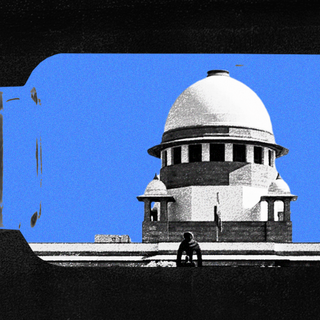The Delhi government has imposed a new restriction on private schools in the national capital meant to make education more inclusive. The institutions will no longer be allowed to force their students to show up only in uniforms stitched by prescribed vendors, and carry books bought from designated bookstores, an order by Delhi’s Directorate of Education (DoE) stated.
A withstanding culture across many private schools compels students to purchase uniforms and books from specificvendors that sell the amenities at a higher price. The arrangement is one where schools earn a commission for the sales and maximize their profits. Unfortunately, however, the garments and stationery that these shops sell, are unaffordable for many parents — endangering the future of their children by threatening their education.
In doing so, both school uniforms and school books become barriers to education — beginning to eclipse students’ right to education by making the commodities unaffordable to many. And thus, education turns into a profit-generating endeavor, rather than a means to improve society. That’s precisely what lay at the heart of the censure the schools drew.
The cause of education is “nurtur[ing] the future of the nation, not minting money,” as Manish Sisodia, the Deputy Chief Minister of Delhi, said. A school uniform, as its very name suggests, is a way to accomplish uniformity in a bid to instill equality. Ironically, though, it appears that school uniforms have become a means to reinforce class divides. Books, too, meant to be an instrument of education, are jeopardizing the educational prospects of many young students — exposing them to discrimination and exclusion.
The hope, here, is the new order will help topple the class divides private schools have thus established — by not just commodifying, but also monopolizing educational necessities.
Related on The Swaddle:
Students, Teachers Worry Common Entrance Tests for Central Universities Will Leave Out Marginalized Groups
The DoE has mandated the schools to issue a list containing names of, at least, five vendors from whom books and uniforms can be purchased for students. “Schools shall display [a] class-wise list of books and writing materials to be introduced in the coming session as per rule well in advance on the school website, and (this should) also be communicated clearly to parents via other media… [Parents] have the right to clear and proper information about books and uniforms before the beginning of the academic session, so that they can arrange them from a place of their choice,” noted the order.
“Parents can buy books and uniforms from any shop as per their convenience and suitability,” it added.
Further, the order also precludes schools from modifying their uniforms — be it in terms of colors or designs — for, at least, three years following a new uniform coming into effect.
Frequent changes force parents to buy shell out money for new uniforms when the old ones are far from frayed. Reportedly, some schools also frequently change the sets of books assigned to every batch for a specific academic year — preventing students from using second-hand books.
Related on The Swaddle:
How the Indian Education System Reinforces Caste, Class Differences
Not only are the practices detrimental to the goal of education, but also harm the environment.
“It is a big scam… The school has also changed the books. This is the pattern after every two years. Either they change half the books or the whole set to force parents to buy new books,” Manzor Ahmad, a government employee, had told Hindustan Times in 2021, lamenting the costs he was set to incur when his son got promoted to the next class.
Criticizing the “profit maximization and commercialization” that schools are indulging in through the practice of striking deals with vendors to earn commissions on sales, the order reiterated that private schools are meant to function on a “no profit no loss” system. Schools found acting in violation of the order will face strict action, it noted.
The decision will, perhaps, inspire other states — where the practice of commodification and monopolization of books and uniforms are prevalent and not explicitly threatened with stringent legal action — to issue similar orders.




